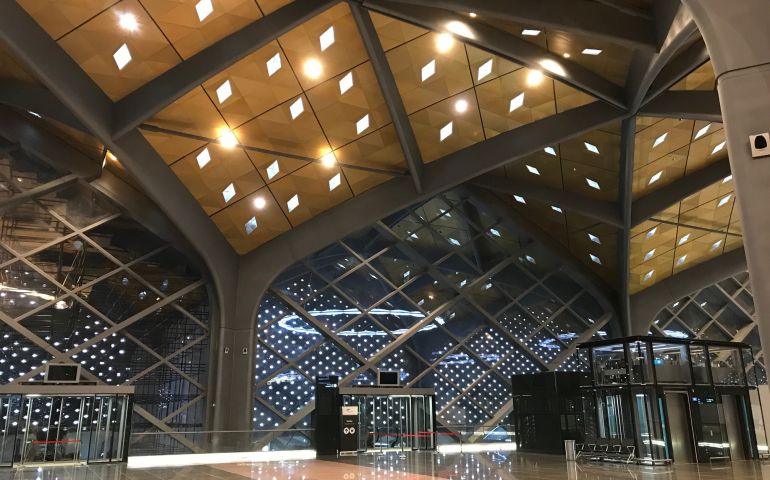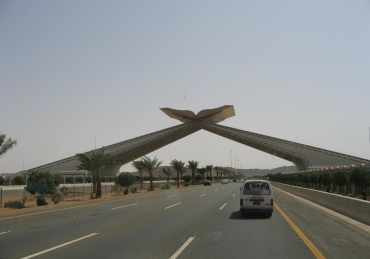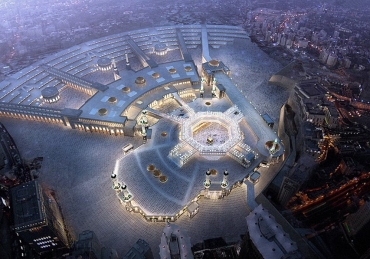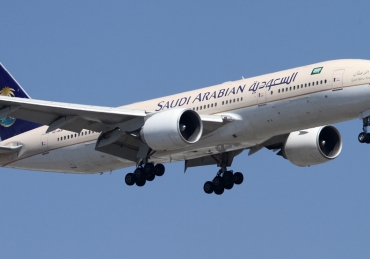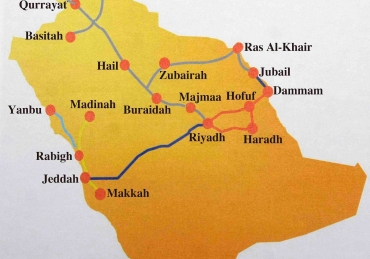Crossing Mīqāt without Iḥrām due to Makkah travel restrictions and what to do if able to reach Makkah via car or train
Question
I travelled from London to Jeddah and did not enter into Iḥrām at Mīqāt because I was travelling on a tourist visa and unsure that I would be able to get out of the Airport at Jeddah and thereafter also unsure about passing the checkpoint before Makkah al-Mukarramah, because of it being the days of Hajj. My intention when crossing Mīqāt was thus Jeddah. My question is that if I succeed to pass the Shumaysi checkpoint, and my intention is to perform Hajj, do I enter into Iḥrām from here and if so, what intention do I make? Or can I delay entering into Iḥrām from Makkah until 8th Dhū al-Ḥijjah? Alternatively, if I travel via train from Jeddah to Makkah al-Mukarramah and do not make intention for Hajj, because I understand there are checks at Makkah al-Mukarramah train station, what intention do I make if I succeed to exit the train station and when do I make this intention? Do I need to go to Tanʿīm?
بسم الله الرحمن الرحیم
Answer
If a resident of Ḥill (the area between ḥaram and mīqāt) or a person who shares their status, travels to Ḥaram with the intention of Hajj, they are obliged to enter into Iḥrām for Ḥajj (Ifrād) from anywhere in Ḥill, enter Makkah al-Mukarramah, perform Ṭawāf Qudūm (and Saʿī of Hajj, if he wishes to do so or he can delay until after Ṭawāf Ziyārah). If for some reason, they do not enter into Iḥrām in Ḥill and enter into Iḥrām in Ḥaram and proceed to Mina and Arafat, the preferred view is that there is no Dam (penalty) as long as they do not perform any of the rituals of Hajj such as Ṭawāf and Saʿī. All of this is when such a person’s intention when entering Ḥaram is to perform Hajj. If he does not intend to perform Hajj or is undecided, he is not obliged to enter into Iḥrām in Ḥill. Upon arrival into Makkah, he can enter into Iḥrām if he decides to perform Hajj, similar to what the residents of Makkah do.
Based on this, if a person has passed the Shumaysi checkpoint which is in Ḥill and he intends to perform Hajj before entering into Ḥaram, he is obliged to enter into Iḥrām before entering Ḥaram. If he has already entered Ḥaram, he should go to a place in Ḥill such as Tanʿīm and enter into Iḥrām from there. However, if he does not and does not perform Ṭawāf and Saʿī, his Hajj is complete without any penalty, because Arafat is in Ḥill, and he has thereby entered Ḥill before performing the farḍ and wājib rituals of Hajj. (The ruling would thus differ in the event of ʿUmrah necessitating a Dam).
However, if the person has not made an intention to perform Hajj or is undecided because there is a checkpoint within Ḥaram or because of a check at the train station in Ḥaram, they can enter into Makkah without Iḥrām. If they subsequently decide to perform Hajj, they will share the status of the people of Makkah and thereby will enter into Iḥrām for Hajj (Ifrād) from Makkah.
It should be noted that those living in Ḥaram and Ḥill or holding their status should not perform Qirān or Tamattuʿ.
Note: If a person in a similar scenario travels from Madīnah to Makkah in train with the intention of Makkah, and does not enter into the state of Iḥrām, a Dam will be necessary for crossing Mīqāt with the intention of Ḥaram (Makkah), irrespective of whether he has intention of performing Hajj or not. However, if his intention when crossing Mīqāt is Jeddah, then Dam will not be necessary, even if he travels to Makkah thereafter. Such a person will share the status of those who reside in Ḥill and their ruling has been detailed above.
قال محمد في الجامع الصغير (ص ١٤٦): رجل دخل بستان بني عامر لحاجة فله أن يدخل مكة بغير إحرام ووقته البستان، وهو وصاحب المنزل سواء إن أحرما من الحل، انتهى. وقال الحاكم الشهيد في الكافي المطبوع في الأصل (٢/٥١٨): ومن كان من وراء الوقت إلى مكة فله أن يدخلها لحاجته بغير إحرام، بلغنا عن ابن عمر رضي الله عنهما أنه خرج من مكة إلى قديد ثم رجع إلى مكة فدخلها بغير إحرام. وإذا أراد الإحرام وأهله في الوقت أو دون الوقت إلى مكة، فوقته من أهله، فإن تعداه حتى يدنو من الحرم ثم أحرم أجزأه وليس عليه شيء، فإن دخل مكة فأحرم منها فعليه أن يخرج من الحرم فيلبي، فإن لم يفعل حتى يطوف بالبيت فعليه دم. كوفي أراد بستان بني عامر لحاجة ثم بدا له بعد ما قدم البستان أن يحج فأحرم من البستان فلا شيء عليه، وإن أراد أن يدخل مكة بغير إحرام لحاجة فله ذلك، وليس للرجل من أهل المواقيت ومن دونها إلى مكة أن يقرن ولا أن يتمتع، وهم بمنزلة أهل مكة، ألا ترى أن له أن يدخل مكة بغير إحرام، انتهى. وقال (٢/٥٣٣): وكذلك أهل المواقيت ومن دونهم إلى مكة لا متعة لهم ولا قران لقوله تعالى: ذلك لمن لم يكن أهله حاضري المسجد الحرام، انتهى۔
وقال السمرقندي في تحفة الفقهاء (١/٣٩٥): وأما ميقات من كان داخل المواقيت خارج الحرم كأهل بستان بني عامر للحج والعمرة جميعا فمن دويرة أهلهم أو حيث شاؤوا من الحل، ولا يباح لهم دخول مكة بقصد الحج والعمرة إلا محرمين. وكذلك الآفاقي إذا حضر بالبستان والمكي إذا خرج من الحرم إليه وأراد أن يحج أو يعتمر فيكون حكمهما كحكم أهل البستان، انتهى. وقال رحمة الله السندي في لباب المناسك (ص ١١٦): فصل في الصنف الثاني وهم الذين منازلهم في نفس الميقات أو داخل الميقات إلى الحرم فوقتهم الحل للحج والعمرة، وهم في سعة ما لم يدخلوا أرض الحرم، ومن دويرة أهلهم أفضل، ولهم دخول مكة بغير إحرام إذا لم يريدوا نسكا وإلا فيجب، انتهى۔
وقال ابن عابدين في منحة الخالق (٢/٣٤٣): قال العلامة الشيخ قطب الدين في منسكه: ومما يجب التيقظ له سكان جدة بالجيم وأهل حدة بالمهملة وأهل الأودية القريبة من مكة، فإنهم في الأغلب يأتون إلى مكة في سادس ذي الحجة أو في السابع بغير إحرام ويحرمون من مكة للحج، فعلى من كان حنفيا منهم أن يحرم بالحج قبل أن يدخل الحرم، وإلا فعليه دم لمجاوزة الميقات بغير إحرام، لكن للنظر هنا مجال إذا أحرم هؤلاء من مكة كما هو معتادهم وتوجهوا إلى عرفة، ينبغي أن يسقط عنهم دم المجاوزة بوصولهم إلى أول الحل ملبين، لأنه عود منهم إلى ميقاتهم مع الإحرام والتلبية، وذلك مسقط لدم المجاوزة اللهم إلا أن يقال لا يعد هذا عودا منهم إلى الميقات، لأنهم لم يقصدوا العود إليه لتلافي ما لزمهم بالمجاوزة بل قصدوا التوجه إلى عرفة، ولم أجد من تعرض لذلك، والله أعلم بالصواب اهـ. وقد نقله الشيخ عبد الله العفيف في شرحه وأقره، وقال القاضي محمد عيد في شرح منسكه: والظاهر السقوط، لأن العود إلى الميقات مع التلبية مسقط سواء نوى العود أو لم ينو لحصول المقصود وهو التعظيم اهـ. كذا في حاشية المدني على الدر المختار، انتهى. ونحوه في رد المحتار (٢/٤٧٨) وحاشية شرح اللباب (ص ١١٦). وبه علم وجوب الدم للحلي الذي أراد العمرة ودخل الحرم بدون الإحرام، وعليه يحمل ما ورد في عبارة الكافي المذكورة۔
ولكن سقوط دم المجاوزة بسبب وصولهم إلى عرفة مقيد بما إذا يكون الوقوف بعرفة أول أعمالهم من مناسك الحج، فلو طاف وسعى بين الصفا والمروة، لا يسقط الدم، ولم أر من تعرض لهذا بخصوصه، ولكن قال رحمة الله السندي في لباب المناسك (ص ١١٩): فإن عاد قبل شروعه في طواف أو وقوف سقط إن لبى منه، وإن عاد بعد شروعه كأن استلم الحجر أو وقف بعرفة لا يسقط، انتهى. وفيه أنه لو أعاد سعيه بعد طواف الزيارة ينبغي أن يسقط دمه۔
Allah knows best
Yusuf Shabbir
7 Dhū al-Ḥijjah 1444 / 25 June 2023
Approved by: Mufti Shabbir Ahmed and Mufti Muhammad Tahir

